


Shaping tomorrow’s cities – the role of youth in urban design
In the bustling corridors of urban planning and development, a new wave of voices is rising to the forefront – those of young people. As cities worldwide grapple with the complexities of rapid urbanisation, climate...Read more
Nigeria’s cities are growing fast: family planning must be part of urban development plans
Nigeria is rapidly urbanising, with more people living in urban areas than in rural communities. A recent World Bank estimate shows that 53 per cent of the 213 million Nigerians live in urban areas. That’s...Read more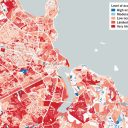
How higher quality data can help improve urban planning and reduce inequities
Local-level, high-quality data can provide powerful insights for urban planning and lead to better policies on mobility, climate adaptation, gender equity and more. But only if the inputs are good and there’s enough capacity to analyse it effectively.Read more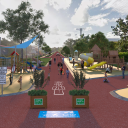
Cars have taken over our neighbourhoods. Kid-friendly superblocks are a way for residents to reclaim their streets.
You might remember your time as a child playing outdoors with friends and walking to school. These activities had tremendous benefits for our health and development.Read more
Cities with more vegetation mean ‘better health behaviours’ in children
Areas of cities with more vegetation, higher density of buildings and facilities, lower population density and fewer major roads are associated with better health behaviours in children. Those are the findings of a conclusion of a...Read more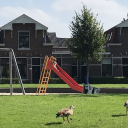
Playing outside: who, where and what?
Fortunately, more and more attention is being paid to a play-friendly public space in both research and policy. Yet there is still little insight into very basic questions. For example, do boys play more outside than...Read more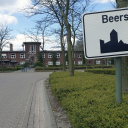
Belgian town gives youngsters a budget to realise their ideas
A small town in Belgium is putting its young citizens firmly at the heart of its urban planning process by giving them a dedicated annual spending pot.Read more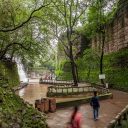
Urban planning ‘may affect a child’s cognitive and motor development’
A new study from the Barcelona Institute for Global Health (ISGlobal) has provided further scientific evidence of the health benefits of well-designed urban planning. It suggests the built environment, green space and air pollution can...Read more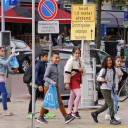
Online workshop examines children’s perceptions of the urban world
‘Experimenting’ with how children see and experience elements of city life will be the subject of an online workshop being held by the University of Amsterdam.Read more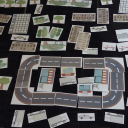
Study calls for young children’s voices to be heard in urban planning
Research carried out in New Zealand has shown that young children are – as many have already argued – ‘intuitive’ urban planners.Read more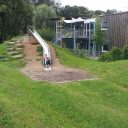
‘Urban Playground’ makes the case for child-friendly cities – Tim Gill
No parent would ever say ‘this is a great neighbourhood – but I won’t let my child walk to school or play in the local park’. Former Bogotá mayor Enrique Peñalosa grasped this insight when...Read more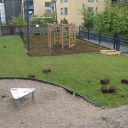
Forest-based children’s play yards can quickly boost their immune systems
Replacing gravel and stones in children’s outdoor play areas with ‘a mini forest’ can significantly help to boost youngsters’ immune systems.Read more
Children’s views should be taken into account when designing urban space
Children see the world in a different way to adults, but urban planning policies rarely take this into account. By focusing on adult needs and views, children are often planned out of our public spaces...Read more
Without sustainable cities, global development goals will fail
Cities have been the epicentre of the COVID-19 pandemic, with little discrimination between more and less developed urban environments.Read more

